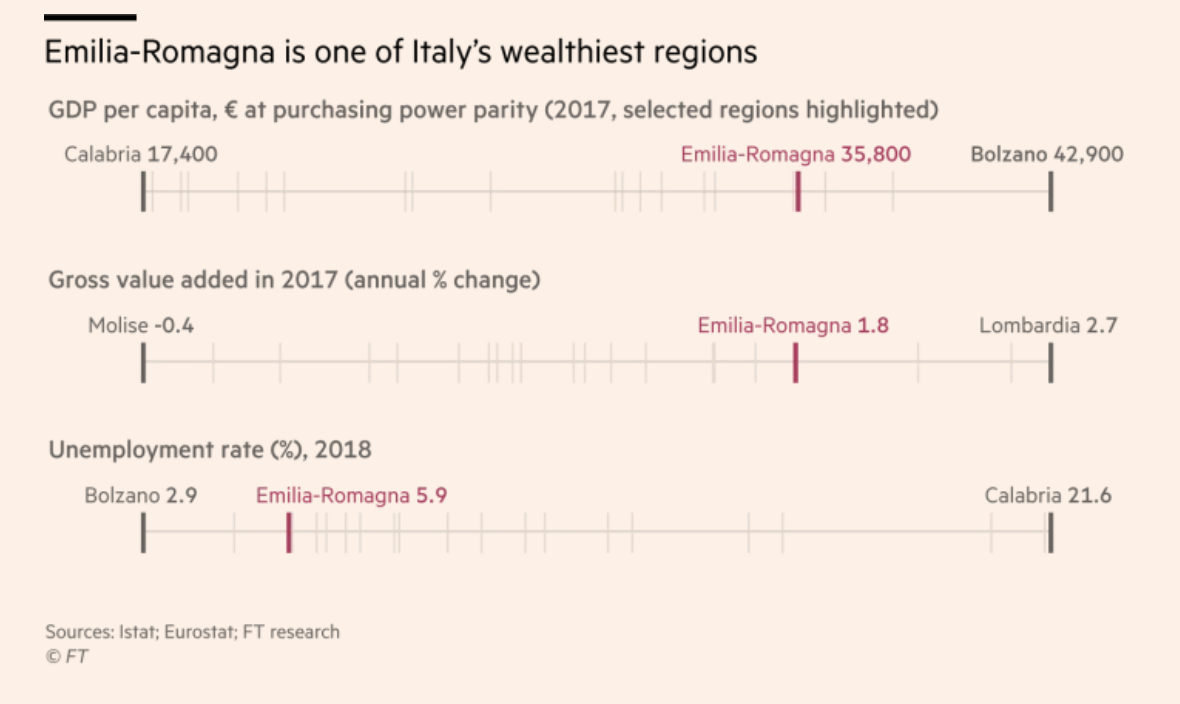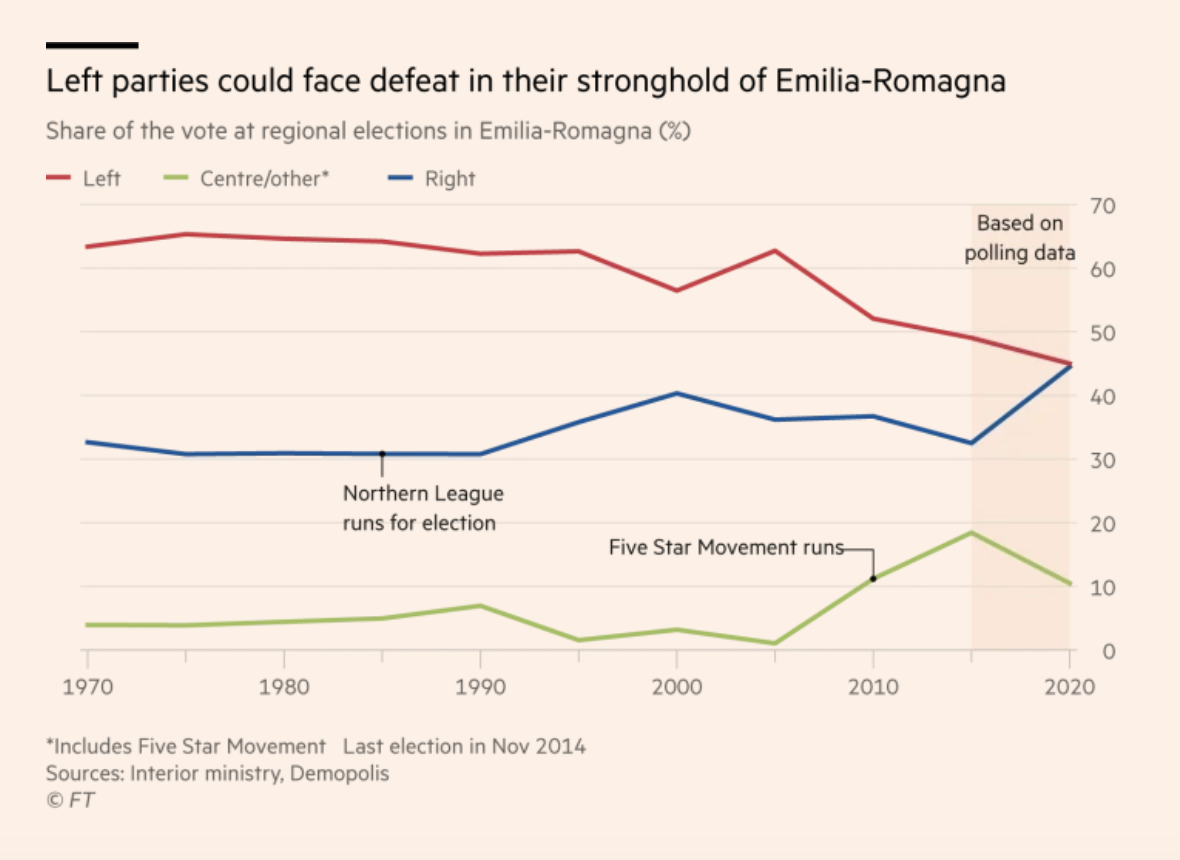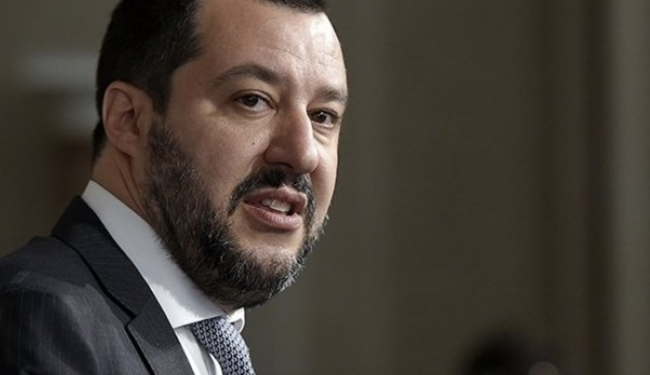When Matteo Salvini and his League Party were banished to the Italian opposition late last summer after a failed coup attempt, he swore that he would have his revenge on his former coalition partners, the Five Star Movement, who formed a new coalition with the centrist-establishment PD and booted the League out of the government.
In the months that have followed, Salvini has been an incredibly effective leader for Italy’s opposition. And polls reflect his success: Most public opinion polls suggest the League is the most popular party in Italy.
Matteo Salvini’s League party continues to dominate Italy’s polls.
The latest poll has Salvini and the League at 34%, only half a percentage point behind the combined support for the Five Star Movement and the Democratic Party, which form the current ruling coalition government. pic.twitter.com/MgNiBsYtQQ
— Wojtuś (@WojReport) November 21, 2019
Via his Twitter account, Salvini engages with voters while expounding on the problems facing Italy: drugs, crime a general sense of economic stagnation and malaise. With his folksy appeal, he has managed to win over areas in the Italian north that were once thought to be staunchly left-wing turf.
In its latest ‘Big Read’, the Financial Times explores how Salvini and his party have won over areas of Italy that were strongholds of the Italian Communist Party for decades. Even into the new millennium. Of course, the Italian Communist Party morphed into a left-wing social democrat party after the fall of the Soviet Union, like most other Communist Parties across Europe and Asia.
The FT story begins with Alan Fabbri, the mayor of the city of Ferrara, in northern Italy’s Emilia Romagna region. His parents were staunch communists, and his grandparents were partisans who fought against Mussolini. Yet, he registered as a member of the League when he was 19, and eventually rose to be mayor of Ferrara, despite it’s tradition of electing leftists.
But as a teenager, he joined the Northern League, which was then a right-wing separatist party. But under Salvini’s leadership over the past six years, the re-branded “League” has become a national right-wing party known for its anti-migrant stance. And according to most polls, it holds a plurality, even in regions with a history of a strong leftist tradition.
Why?
As the FT explains, because many former communists believe that the League is now the party that protects workers. It mirrors the shift in the US, as many unions backed President Trump and his position as a champion of workers.
Fabbri said his grandfather always had a copy of a Marxist newspaper on his kitchen table even though he was illiterate.
But for the new generation, things are changing. Nobody remembers WWII and the heroic efforts of the partisans fighting the fascists.
“Many here used to believe people could never vote for a right-wing party because of their family traditions, but that has changed. Many ex-communists now vote League as we defend workers. The left has taken this region for granted, they thought they had already won and they were shocked.”
All of this is important for one critical reason: Later this month, Italians in Emilia Romagna will head to the polls for regional elections that could help throw the balance of power in Italy’s parliament back in Salvini’s favor.
Incidentally despite it’s leftist tradition, the region is also one of Italy’s wealthiest.

Polls show the right-wing candidate, League stalwart Lucia Borgonzoni, is polling neck-and-neck with her left-wing rival.

Her victory would “trigger a crisis in the ruling coalition, threatening to bring down Italy’s government for the second time in six months.
Opinion polls are showing the rightwing coalition candidate, the 43-year-old League senator Lucia Borgonzoni, may be able to smash through Italy’s red wall. She is neck and neck with the incumbent centre-left Democratic party (PD) president of the region, Stefano Bonaccini.
Mr Salvini is bullish. “Let it be clear, we are going to win here,” he said on the campaign trail last week in Modena. “From the 27th of January the world is going to change…Everyone here tells me that they used to vote communist but now they don’t any more because they are no longer communists, they are something else now.”
Should Ms Borgonzoni triumph, not only would it deal a hammer blow to the PD, it would also probably trigger a crisis in the ruling coalition with the Five Star Movement, which could threaten to bring down the government. With Mr Salvini’s party far ahead of its rivals in national polls, new elections could then see the League leader sweep to power as Italy’s prime minister.
“If the PD lose in Emilia-Romagna, it 100 per cent has the potential to bring down the national government and set Salvini on course to become prime minister,” says Daniele Albertazzi, an academic at the University of Birmingham and expert on the history of the League. “It really is too close to call.”
If that happens, Salvini could finally realize his dream of becoming prime minister…and the new European Commission just might face its first crisis of confidence if Salvini pushes for ‘Italeave’ or even dropping the euro.
And for all of his critics who have branded Salvini a dangerous fascist, remember: he has supporters for a reason.
Matteo #Salvini represents the real people, captures the Italian spirit and desire for change: this is democracy, freedom, choice; and calling all this fascism or extremism is wrong and disrespectful – #italy https://t.co/HOl9cHeAEI
— Alex Ferrari II (@FerrariGop) January 13, 2020











